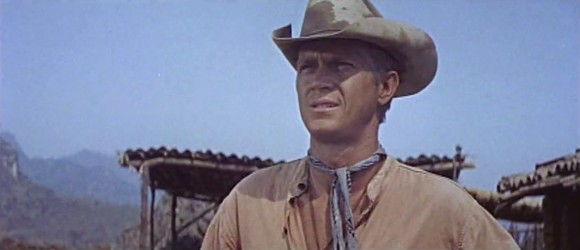Moon House
- At May 07, 2015
- By Bob Howe
- In Blog Posts, Poetry
 0
0
 I’d forgotten the sky
I’d forgotten the sky
existed,
until I saw the moon today;
two hundred and thirty eight thousand miles above
my earthbound fears.
I’ve driven cars that far,
if not any one car,
on city streets and highways, and once,
disastrously, on a logging road,
cut though an Oregon forest
like a coroner’s incision;
perfectly straight, perfectly functional, and perfectly ugly.
Only booted feet and gloved hands have
touched the moon, and
at that, it has driven men
quietly insane.
Reveille! Reveille! All hands heave out and trice up. Now reveille!
- At April 15, 2015
- By Bob Howe
- In Blog Posts, Poetry
 0
0
the sleepy commuter army
hung with backpacks and hard hats
newspapers and handbags
in disorderly queue
looking down
the track for that morning
train
we snap sheepishly awake
when the station lights go out
photosensitive reveille
as morning pulls into the station
What Separates the Men from the Boys
- At March 07, 2015
- By Bob Howe
- In Blog Posts
 0
0
And when Deli’lah saw that he had told her all his heart, she sent and called for the lords of the Philistines, saying, Come up this once, for he hath showed me all his heart. Then the lords of the Philistines came up unto her, and brought money in their hand.
And she made him sleep upon her knees; and she called for a man, and she caused him to shave off the seven locks of his head; and she began to afflict him, and his strength went from him.
(King James Version, Judges 16.18, 19)
There are bits and snatches of the Bible that contain some truth: this is one of them. Taken symbolically, the story of Samson and Delilah can be read as the tradeoff between empathy and rage; between home and the battlefield. Once warriors start to feel their feelings, they’re no longer fit for battle–they have returned to the world of the living.
It runs counter to the more common interpretation of Samson and Delilah–that women are duplicitous harlots out to emasculate men–but mine isn’t an original observation: even that epic ode to Mars, The Magnificent Seven, acknowledges the tradeoff in the scene “Gunfighter Arithmetic.” To be a real man means to be alone. You’re feared and respected and as cut off from the human race as a shipwrecked sailor.
Boys growing up now have many more models of what it means to be a man than I did in the 1960s and 1970s, but the landscape of the male psyche is still dominated by the warrior, the cop, the gunman. Just since its Christmas release, American Sniper has earned more than $333 million: almost ten times as many Americans have already seen the film as served in Iraq and Afghanistan combined.
Other war films are have likewise had robust box office numbers this year, including Fury, Unbroken, 300, and The Monuments Men. Police procedurals are ubiquitous on television, including kudzu franchises like NCIS, Law & Order, and CSI: Coming to Your City Momentarily.
Tough guys, in other words, are in no short supply in mainstream entertainment and culture. Brave cops and firefighters are staples of the local news, and every member of the military is a “hero.” (Tellingly, the latter assertion gets more pushback from within the military than anywhere else.) All of these tropes are also served up generously on the Internet.
This view of manhood is pervasive and insidious, and it would take an almost psychotically protective parent to completely shield a child from its influence. In “How a Tree Becomes a Boy: Robert J. Howe’s ‘Pinocchio’s Diary,’” Lizz Angello writes: “Real boys are not reducible to bravery, honesty, and generosity. Real boys get afraid; they lie; they look after their own needs. Real boys struggle; they hurt; and they fail. They are not wooden and unchanging, but rather flesh and blood soft and tender and vulnerable.”
Angello’s observations are especially pointed because she’s raising a son herself in a culture that still seems to default to the narrowest possible definition of manhood: Take no shit from anyone, and show no emotion doing it.
It’s obviously an issue that preoccupies me. As a kid I learned that real boys were not afraid, and not afraid to use violence to solve problems. The first piece of actual wisdom I absorbed on this topic was from a veteran detective teaching a handgun safety class in Portland, Oregon. He said, “In the movies your troubles are over when you pull the trigger. In real life, that’s when they start.” I was 35 years old at that point, already a military veteran, college graduate, and husband. It’s possible that I am a preternaturally slow learner in this regard, but the Internet says no.
What I hate about the narrow way manhood is portrayed in popular culture is that it’s a lie. Worse, it’s a beautiful, cinematic lie. No one cries for their mother when they’ve been shot; no one empties their bowels in fear; no one vomits after a spasm of violence, nor weeps uncontrollably. In the movies you don’t see gunshot victims sporting colostomy bags or tracheotomy scars. You don’t see the good guy choking his wife in his sleep because he’s reenacting a life-and-death streetfight. Real violence is ugly and atavistic, and it usually marks not just the victim, but the perpetrator and witnesses, as well.
More lies: the tough-guy cop who’s a loving husband and engaged father? Domestic violence is at least two to four times more common among cops than the general population, and some studies say that more than 40 percent of police officers are domestic abusers. We recently saw a spectacularly gruesome example of the genre in New York, when a retired suburban cop killed his two daughters and several family pets, possibly to punish his wife who was contemplating divorce.
Likewise, the special ops trigger-puller who’s an adoring family man? Domestic violence among members of the military is two to three times more common than in the civilian population. One study on domestic violence in military families quoted Stan Goff, a special operations veteran: “Go to Afghanistan where you are insulated from outside scrutiny and all the taboos you learned as a child are suspended. You take life more and more with impunity, and discover that the universe doesn’t collapse when you drop the hammer on a human being, and for some, there is a real sense of power. For others, for all maybe, it’s PTSD [post-traumatic stress disorder] on the installment plan.”
In real life, in fact, the good guy usually doesn’t win. He’s the one with a family, respectable employment, and a house in Massapequa. He’s going to lose the fight to an unemployed barfly who sleeps in his pickup, because the barfly isn’t going to hesitate, and he isn’t going to pull his punches. The barfly certainly isn’t going to want a fair fight–if he has to hit the good guy with a pool cue to put him down, that’s what he’s going to do. Go to the gym all you want, but prisons are full of 100-pound murderers with poor impulse control.
Violence–whether it’s physical or emotional–makes you mute. It cuts you off from yourself, and from other people. That’s true whether you’re the victim or you’re dealing it out. You necessarily surrender much of your feelings as long as you are a citizen of mayhem’s country. You can return from that land, but it’s a long, hard journey (think of Odysseus returning to Penelope’s couch after the Trojan War). If you have the luxury of choosing, it’s better never to have gone in the first place.

